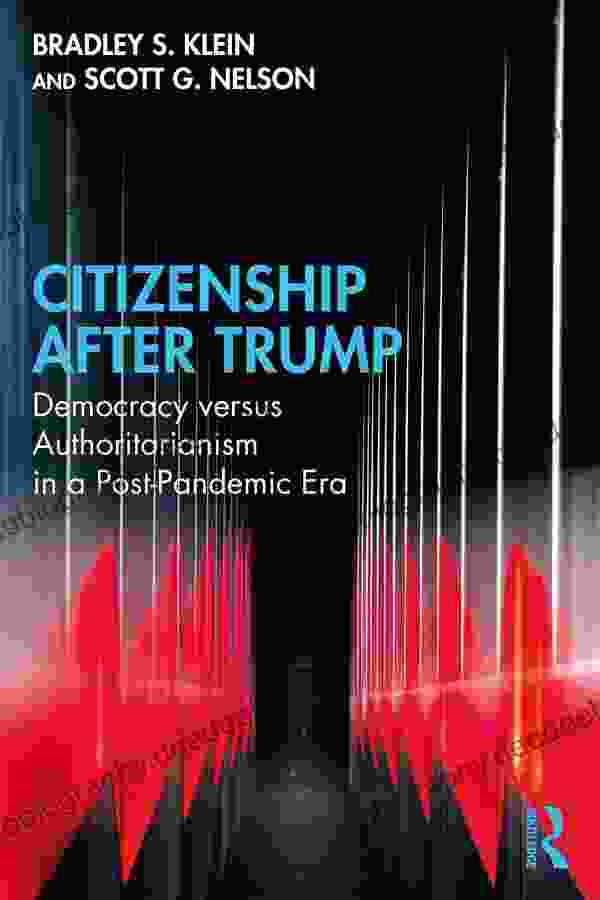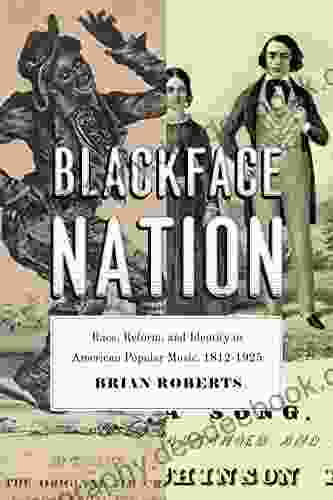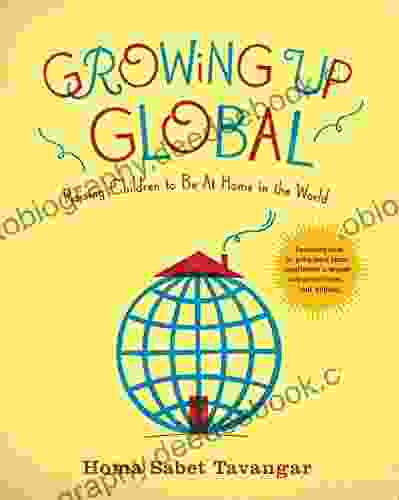Race Reform and Identity in American Popular Music, 1812-1925

American popular music has a long and complex history of reflecting and shaping ideas about race and identity. From the early days of minstrel shows to the rise of ragtime and blues, popular music has played a significant role in both promoting racial equality and challenging racial stereotypes.
5 out of 5
| Language | : | English |
| File size | : | 5420 KB |
| Text-to-Speech | : | Enabled |
| Screen Reader | : | Supported |
| Enhanced typesetting | : | Enabled |
| Word Wise | : | Enabled |
| Print length | : | 372 pages |
| Lending | : | Enabled |
The Early Years: Minstrel Shows and Blackface
The first major form of popular music in the United States was the minstrel show. Minstrel shows, which originated in the early 1800s, featured white performers in blackface who sang, danced, and told jokes that often mocked and caricatured African Americans.
Minstrel shows were immensely popular, and they helped to shape the way that many Americans viewed African Americans. The shows reinforced stereotypes of African Americans as lazy, ignorant, and superstitious. They also helped to create a sense of white superiority.
The Rise of Ragtime and Blues
In the late 19th century, a new genre of popular music emerged: ragtime. Ragtime was a syncopated, upbeat style of music that was often played on the piano. Ragtime was popular among both black and white audiences, and it helped to break down some of the racial barriers that had existed in popular music.
Around the same time, blues music began to emerge in the African American community. Blues was a more somber and introspective style of music that often dealt with themes of love, loss, and racism. Blues music was popular among both black and white audiences, and it helped to give voice to the experiences of African Americans.
Race Reform and the Civil War
The Civil War was a watershed moment in American history, and it had a profound impact on popular music. The war led to the abolition of slavery and the passage of the 14th Amendment, which granted citizenship to all Americans, regardless of race. These changes helped to create a more just and equitable society, and they also had a positive impact on popular music.
After the Civil War, a new generation of African American musicians emerged who were determined to challenge racial stereotypes and promote racial equality. These musicians, known as the "race reformers," used their music to speak out against racism and to demand equal rights for African Americans.
The Birth of Jazz
In the early 20th century, a new genre of popular music emerged: jazz. Jazz was a fusion of African American and European musical traditions, and it quickly became one of the most popular genres in the world. Jazz was often played in nightclubs and dance halls, and it helped to create a more cosmopolitan and inclusive society.
Jazz musicians, many of whom were African American, played a significant role in the fight for racial equality. They refused to play in segregated venues, and they often used their music to speak out against racism. Jazz music helped to break down racial barriers and to create a more just and equitable society.
American popular music has a long and complex history of reflecting and shaping ideas about race and identity. From the early days of minstrel shows to the rise of ragtime and blues, jazz, and rock and roll, popular music has played a significant role in both promoting racial equality and challenging racial stereotypes.
Today, popular music continues to be a powerful force for social change. Artists from all backgrounds use their music to speak out against racism, promote equality, and build a more just and equitable society.
5 out of 5
| Language | : | English |
| File size | : | 5420 KB |
| Text-to-Speech | : | Enabled |
| Screen Reader | : | Supported |
| Enhanced typesetting | : | Enabled |
| Word Wise | : | Enabled |
| Print length | : | 372 pages |
| Lending | : | Enabled |
Do you want to contribute by writing guest posts on this blog?
Please contact us and send us a resume of previous articles that you have written.
 Novel
Novel Page
Page Text
Text Story
Story Genre
Genre Reader
Reader Library
Library E-book
E-book Magazine
Magazine Newspaper
Newspaper Paragraph
Paragraph Bookmark
Bookmark Glossary
Glossary Bibliography
Bibliography Foreword
Foreword Synopsis
Synopsis Codex
Codex Library card
Library card Narrative
Narrative Biography
Biography Memoir
Memoir Encyclopedia
Encyclopedia Thesaurus
Thesaurus Narrator
Narrator Catalog
Catalog Archives
Archives Periodicals
Periodicals Study
Study Scholarly
Scholarly Lending
Lending Reserve
Reserve Academic
Academic Rare Books
Rare Books Special Collections
Special Collections Interlibrary
Interlibrary Study Group
Study Group Thesis
Thesis Dissertation
Dissertation Reading List
Reading List Textbooks
Textbooks Henry A Giroux
Henry A Giroux Pat Hatt
Pat Hatt Richard K Betts
Richard K Betts Benjamin Paloff
Benjamin Paloff Collins Dictionaries
Collins Dictionaries Farid Mohammed Rashid
Farid Mohammed Rashid John Reed
John Reed Hilary Grossman
Hilary Grossman Alison Espach
Alison Espach Kim L Anderson
Kim L Anderson Betsy Hartmann
Betsy Hartmann Katherine A Dougherty Stahl
Katherine A Dougherty Stahl Elena Casati
Elena Casati Karen Wielinski
Karen Wielinski Michael Sky
Michael Sky Philip Dray
Philip Dray Peter Parker
Peter Parker Josh Lerner
Josh Lerner Ryan James
Ryan James Leonard N Moore
Leonard N Moore
Light bulbAdvertise smarter! Our strategic ad space ensures maximum exposure. Reserve your spot today!

 Milton BellLittle Gods: A Novel by Meng Jin: Unraveling the Threads of Identity, Trauma,...
Milton BellLittle Gods: A Novel by Meng Jin: Unraveling the Threads of Identity, Trauma,... Steven HayesFollow ·13k
Steven HayesFollow ·13k Ricky BellFollow ·19.1k
Ricky BellFollow ·19.1k Harry CookFollow ·8k
Harry CookFollow ·8k Johnny TurnerFollow ·13.5k
Johnny TurnerFollow ·13.5k Michael CrichtonFollow ·18.1k
Michael CrichtonFollow ·18.1k Gordon CoxFollow ·17.2k
Gordon CoxFollow ·17.2k Ashton ReedFollow ·3k
Ashton ReedFollow ·3k Gage HayesFollow ·14.7k
Gage HayesFollow ·14.7k

 Fletcher Mitchell
Fletcher MitchellEducation And Peace Montessori 10: Where Learning...
A Symphony of Learning and Well-being Amidst...

 Glen Powell
Glen PowellUnveiling the Wonders of Language and Literacy...
Language and literacy...

 Rod Ward
Rod WardThe Portable Benjamin Franklin: A Timeless Collection of...
In the vast tapestry of American history,...

 Kelly Blair
Kelly BlairDemocracy Versus Authoritarianism in the Post-Pandemic...
The COVID-19...

 Colin Richardson
Colin RichardsonGet Inspired To Shoot Over 130 Poses
Are you looking for...

 Jared Nelson
Jared NelsonEmbark on a Shadowy Journey: The Forbidden Wilds and...
Prologue: A Realm Enshrouded in Darkness As...
5 out of 5
| Language | : | English |
| File size | : | 5420 KB |
| Text-to-Speech | : | Enabled |
| Screen Reader | : | Supported |
| Enhanced typesetting | : | Enabled |
| Word Wise | : | Enabled |
| Print length | : | 372 pages |
| Lending | : | Enabled |










